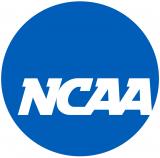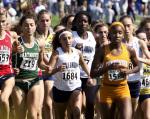Folders |
Georgetown Head XC Coach Michael Smith pre-meet - NCAA D1 Mid-Atlantic RegionalPublished by
Michael Smith is a 2002 graduate of Georgetown and won the Mid-Atlantic region that year. He ran at the Olympic Trials in the Marathon in November of 2007. From 2006-2009 he worked closely with famed physiologist Jack Daniels in Flagstaff, Arizona at the Center for High Altitude Training where he worked with some of the top US runners. In 2011 he took over for Chris Miltenberger, an old training partner of his when both were running at Georgetown. He took over a women's team that had just won an NCAA title.
Adam Schneider (AS) Talk about the season - have you fulfilled or even exceeded your expectations? - also any surprises (even disappointments if you like)
Michael Smith (MS) - We've just been having a lot of fun. We came in with a deep team and a good mix of youth and experience, plus now a full year of learning my training, recognizing what certain stimulus should feel like. And defining what success will mean to us, not what success means to anyone else, which for us is just moving forward. I feel like we got some good momentum for our cross country season with the steady progress we were making in indoor and outdoor track last year. Ascending fitness is cyclical if done right, a spiral upward. Cross leads into track leads into cross. We knew we could be good, maybe didn't bother spending much time wondering how good, all that mattered was that we were moving forward- and we are. Race results are one way to see that but I see athletes growing in their craft and that's what leaves me most satisfied. As far as surprises, I just thought maybe this would take longer. I pushed them and they responded.
AS - Do you feel the team is prepared (injuries or health potentially affect that)? MS - Yes. Without a doubt. I think a year ago I was wishing I had another month or so right about now. I spent this summer just obsessing over timing. This year we're arriving right on schedule. We'll line up seven healthy, fit, and ready individuals racing for Georgetown.
AS - Tell me about how you feel coming into the Mid-Atlantic Region - possible factors - recovery from a difficult Big East meet, less difficult region than other teams. Your team has built up a good record. Are you trying to take it easy a little to not have too many strenuous 6ks in a row,
MS - The obvious factor is what every team faces: you go from every other week to racing back to back weekends. I'd like to leave this feeling in control of our efforts and excited about heading out to Terre Haute in just a few days. We respect our competition. Nothing is handed to us and the programs we run into in our region are lead by brilliant coaches who I would never underestimate. The athletes have recovered well from Big East, we've had really careful monitoring of them since then. I had several options as far as key workouts entering these weeks, sort of a best case scenario and several adaptations from there based on recovery and feel. I ended up doing less than our best case scenarios but because they looked so good. We couldn't be in a better place for the Regional meet and just 8 days out from NCAAs.
AS - Is the team (that we saw at Big East) healthy? MS - Yes. We're healthy well beyond the 7 we'll race.
AS - You have had a lot of success in just two years at the helm. It helps (and can hinder due to expectations) to have come to an NCAA champion. Tell us about the adjustments and what you have needed to do keep the team's success going.
MS - We had a bunch of things in our favor here that made this pretty smooth. First, I followed someone who I knew well and who is one of the best out there. A certain culture had been put in place, I mean, there are guys out there that have to create that. The next part is on them. I know how I want to train middle distance and distance runners, but they have to come with me. They did.
AS - You have had two freshmen contribute immediately and Nadel is running very well as a sophomore. Tell me a little about incorporating them so quickly and keeping them healthy (they come from different backgrounds and have to blend into your team).
MS - Well they're actually all sophomores and we just redshirted Haley and Rachel last year. For the way I coach it's learning each of them individually. Talking to them, reading them, listening well, meeting them where they are as people not just athletes, mastering that communication. Haley is a fierce, relentless competitor. She has the skillset and the fight to be very, very good. Rachel's is coming on fast and she's learning and evolving with her improvement. She actually started doing shorter distances racing, and trained within workouts structures that aren't as long as mine, so that learning curve is pretty sizable just as far as concentration and feeling out that type of work. She's going to be very versatile and has a great finish at any distance. Sam, has quietly passed each test we've given her, whether track or cross since she's been here, and is accepting her role as a leader, and she's not afraid. They have great older athletes to learn from, and they all have so much growth ahead of them in all categories, it's exciting. They're just so fun to work with, it's easy to give them everything I've got.
AS - How do you think your experience with Dr Jack Daniels in Flagstaff has contributed to your success as a head coach. (what tests and frequency do you do to help with your success) MS - I shared an office for a long time with a master, I consider him not just a great influence but one of my closest friends. I loaded a UHaul with him and his brother for a few hours this summer and it was just another day of him just laying down knowledge, right until the end. 80 year old tossing around 40 pound boxes telling me about measuring economy or whatever. He continues to advise me. Jack is a seeker, and that's the biggest thing I got from him. Coaches should be asking questions, I think that's why I like hanging with those scientists. Following a stimulus, not following what other people do. Ignoring how other people train, ignoring ceilings and focusing on the unique creature in front of you. I got to work with some great coaches and some of the best influences were from places with language barriers, because their training isn't poisoned by the ceilings we create here. Coaches should be asking questions. Another thing from Jack would be having a reason for everything we do. Running a check every day on myself as a coach, making sure that everything I am asking an athlete to do has a reason behind it. It can't just be that it looks like a really cool workout on paper or that so and so trains like this, but that if it passes the checks and balances in my brain to get to the point that I'll ask an athlete to attempt it, both coach and athlete are crystal clear on what we're aiming to accomplish and why. That goes for a 30 minute run, right up to a certain drill, all the way to a season or year long plan.
More news |







